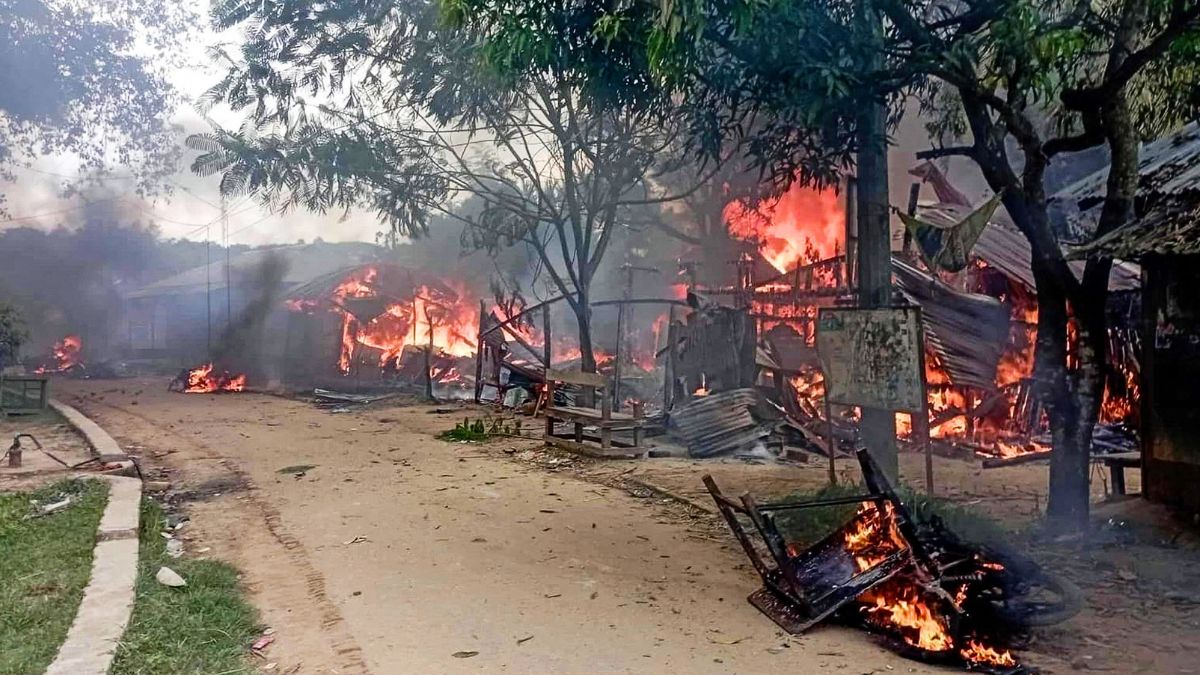India on Friday slammed Bangladesh’s interim regime’s accusation as “false” and baseless" that said India could be behind ethnic unrest in the country’s Chittagong Hills Tracts region.
The response came after Jahangir Alam Chowdhury, Bangladesh’s interim home adviser, on Monday said that the ongoing unrest in Khagrachhari district in the Chittagong region was fuelled by “external influences, including India or fascist elements”.
At the weekly press conference, Ministry of External Affairs (MEA) Spokesperson Randhir Jaiswal suggested the Bangladesh’s interim government to introspect over its failure to maintain law and order instead of shifting the blame elsewhere.
“We categorically reject these false and baseless allegations. The interim government, which is unable to maintain law and order in Bangladesh, has routinely sought to shift the blame elsewhere. It would do well to introspect and conduct serious investigations into the action of local extremists committing violence, arson and land grab against the minority communities in the Chittagong Hill Tracts,” said Jaiswal.
In the latest episode of decadeslong ethnic tensions in the Chittagong region, four people from the tribal community have been killed and hundreds of families have fled for their lives, according to DD News.
Bangladesh’s interim regime blames India for law & order failure
After violence in the Chittagong region, Bangladeshi interim home adviser Chowdhury blamed India and other foreign forces.
Chowdhury said, “This is being orchestrated with the backing of external influences, including India or fascist elements. We are taking comprehensive measures to ensure no one can incite incidents. Our adviser for the Chittagong Hill Tracts is on site, monitoring the situation and coordinating with law enforcement and local leaders."
Bangladesh has been in the grips of cyclic violence since groups behind last year’s weekslong street violence and the military propped the unelected regime of Muhammad Yunus to replace the ousted Prime Minister Sheikh Hasina. Mobs supported either directly by the interim regime’s backers or indirectly by the inaction of the police have kept attacking political rivals and religious and ethnic minorities in the country.
Impact Shorts
More ShortsThe ethnic violence in the Chittagong region is the latest episodes in this cyclic violence presided over by Yunus’ regie.
The episode is rooted in the alleged rape of a tribal girl and subsequent protests by tribal groups collectively called the Jumma people in the Chittagong region.
In subsequent clashes between the Jumma people, who are from minority communities like Buddhists and Hindus, and mainly Muslim Bengali settlers, at least four tribals have been killed and scores injured in Khagrachhari and Rangamati districts of the Chittagong region, as per DD News.
The report said that least 50 shops and dozens of houses were burnt in Khagrachhari.
In the Chittagong region, ethnic tensions and violence have existed for decades as hundreds of thousands Bengali Muslims have been settled in the region that is historically the home of 11 indigenous ethnic groups collectively called the Jumma people. Tens of thousands of troops have also been deployed over the decades to suppress any dissent or protests by indigenous groups against what they say is the systematic dilution of their property rights and cultural identities.
)